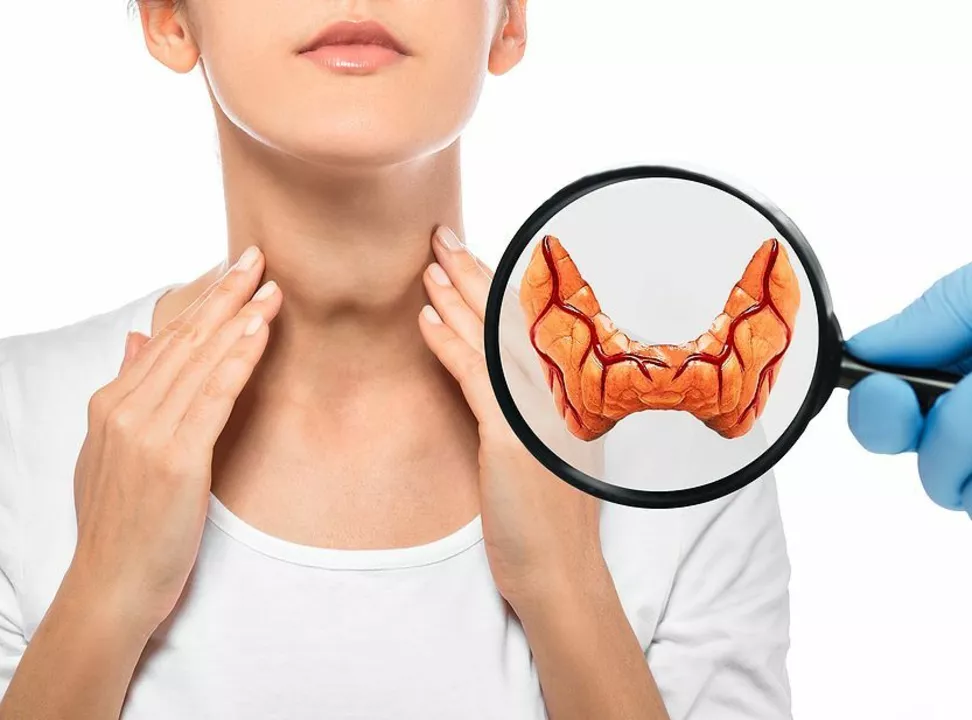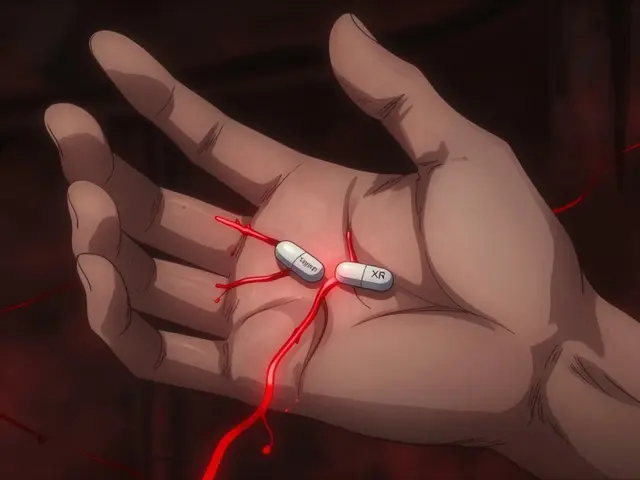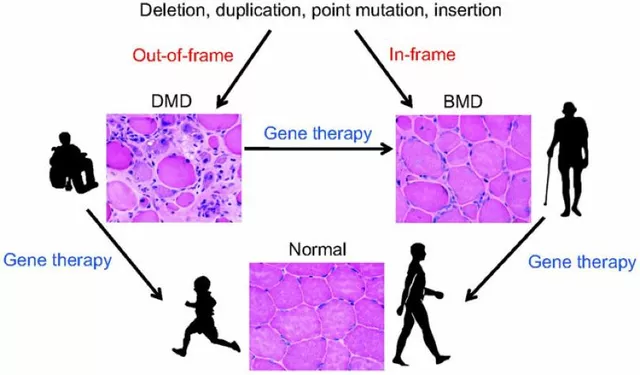Introduction to Thyroid Deficiency
As a health blogger, I often come across various health issues that affect millions of people around the world. One such issue is thyroid deficiency, also known as hypothyroidism. In this article, I will help you understand the causes, symptoms, and treatments of this common health condition. So, let's dive into the world of thyroid deficiency and learn how it can affect our lives.
Understanding the Function of the Thyroid Gland
Before we delve into thyroid deficiency, let's first understand the role of the thyroid gland in our body. The thyroid gland is a small, butterfly-shaped gland located in the front of the neck. It produces two main hormones, thyroxine (T4) and triiodothyronine (T3), which regulate our body's metabolism, growth, and development. When the thyroid gland doesn't produce enough of these hormones, it leads to hypothyroidism, or thyroid deficiency.
Now that we know the importance of the thyroid gland, let's explore the various causes behind thyroid deficiency.
Identifying the Common Causes of Thyroid Deficiency
There are several factors that can contribute to the development of thyroid deficiency. Some of the most common causes are:
1. Autoimmune Disease
Hashimoto's thyroiditis is the most common cause of thyroid deficiency. It is an autoimmune disorder where the immune system mistakenly attacks and damages the thyroid gland, leading to a decrease in hormone production.
2. Iodine Deficiency
Iodine is an essential element required for the production of thyroid hormones. A lack of iodine in the diet can lead to thyroid deficiency, especially in areas where iodine deficiency is prevalent.
3. Radiation Therapy
People who undergo radiation therapy for head and neck cancers may experience damage to the thyroid gland, resulting in hypothyroidism.
4. Medications
Certain medications, such as lithium and amiodarone, can interfere with thyroid hormone production and cause thyroid deficiency.
Now that we have explored the common causes, let's look at the symptoms associated with thyroid deficiency.
Recognizing the Symptoms of Thyroid Deficiency
Thyroid deficiency can manifest in various ways, and the symptoms may vary from person to person. Some of the common symptoms include:
- Fatigue
- Weight gain
- Constipation
- Dry skin
- Depression
- Muscle weakness
- Joint pain
- Slow heart rate
- Increased sensitivity to cold
- Brittle nails
- Thin, brittle hair
- Heavy or irregular menstrual periods
If you are experiencing any of these symptoms, it is crucial to consult a healthcare professional for a proper diagnosis and treatment plan.
Let's now move on to the various treatment options available for thyroid deficiency.
Exploring the Treatment Options for Thyroid Deficiency
Fortunately, thyroid deficiency is a treatable condition. The primary treatment for thyroid deficiency involves hormone replacement therapy, which aims to restore the normal levels of thyroid hormones in the body. Some of the common treatment options include:
1. Levothyroxine
Levothyroxine is the most commonly prescribed medication for thyroid deficiency. It is a synthetic form of thyroxine (T4) and helps to restore the normal hormonal balance in the body. The dosage and frequency of levothyroxine vary depending on the severity of the deficiency and individual factors such as age, weight, and overall health.
2. Liothyronine
Liothyronine is a synthetic form of triiodothyronine (T3) and is used in cases where the body struggles to convert T4 to T3. It is less commonly prescribed than levothyroxine and is usually reserved for specific situations.
3. Natural Desiccated Thyroid (NDT)
NDT is derived from the thyroid glands of pigs and contains both T4 and T3 hormones. Some people prefer NDT over synthetic hormone options, but it's essential to discuss the pros and cons with your healthcare provider before making a decision.
Now that we have covered the treatment options, let's discuss some lifestyle changes that can help manage thyroid deficiency.
Adopting Lifestyle Changes to Manage Thyroid Deficiency
Along with prescribed medications, making certain lifestyle changes can help improve the symptoms of thyroid deficiency and enhance overall well-being. Some of these changes include:
- Maintaining a balanced diet: Ensure that your diet includes adequate amounts of iodine, selenium, and zinc, which are crucial for thyroid hormone production.
- Regular exercise: Engaging in regular physical activity can help combat fatigue, weight gain, and depression associated with thyroid deficiency.
- Stress management: Chronic stress can worsen thyroid deficiency symptoms, so it's essential to practice stress-reducing techniques, such as meditation, yoga, or deep breathing exercises.
- Getting enough sleep: Prioritize sleep to support your body's natural healing processes and hormone regulation.
By incorporating these lifestyle changes and working closely with your healthcare provider, you can effectively manage thyroid deficiency and lead a healthy, fulfilling life.




Elizabeth Post
June 2, 2023 AT 01:28Great overview! If you’re juggling a busy schedule, try breaking up your exercise into shorter bouts throughout the day – even a 10‑minute walk can boost metabolism. Keeping an eye on iodine intake is vital; seaweed snacks or a pinch of iodized salt can make a difference. Remember, consistency with levothyroxine is key – take it on an empty stomach and wait at least 30 minutes before breakfast. Don’t forget to schedule regular blood tests so your doctor can fine‑tune the dosage. Stay positive and listen to your body; you’ve got this.
Brandon Phipps
June 2, 2023 AT 15:22Levothyroxine remains the cornerstone of hypothyroidism management because it reliably restores circulating T4 levels. Dosage calculation typically starts at 1.6 µg per kilogram of body weight, but clinicians adjust based on age, cardiac health, and symptom severity. For younger, healthy adults, the target TSH range is usually 0.4–4.0 mIU/L, though individual goals may vary. It’s essential to take the medication on an empty stomach to maximize absorption, as food and certain supplements can interfere. Calcium carbonate, iron supplements, and fiber-rich meals should be spaced at least four hours apart from the pill. Some patients report persistent fatigue despite normalized labs, prompting consideration of combination therapy with liothyronine. Adding a low dose of T3 can address conversion issues, but it must be monitored closely to avoid hyperthyroid symptoms. Natural desiccated thyroid (NDT) offers both T4 and T3, yet its potency can fluctuate batch‑to‑batch, requiring diligent monitoring. Lifestyle modifications, such as a balanced diet rich in selenium and zinc, support thyroid hormone synthesis and conversion. Regular aerobic exercise not only combats weight gain but also improves mood and cardiovascular health. Stress reduction techniques like mindfulness meditation can lower cortisol, which otherwise hampers peripheral conversion of T4 to T3. Adequate sleep hygiene is another pillar; chronic sleep deprivation can exacerbate metabolic slowdown. For patients with iodine deficiency, incorporating iodized salt or sea‑weed snacks can correct the deficit without over‑supplementation. However, excessive iodine intake may trigger or worsen autoimmune thyroiditis, so moderation is key. Finally, maintain open communication with your healthcare provider, as symptom patterns and lab values together guide optimal therapy adjustments.
yogesh Bhati
June 3, 2023 AT 05:15i think the thyroid is like a tiny engine that decides how fast your life runs, ya know?
sometimes a little salt can fix a big problem, lol.
Akinde Tope Henry
June 3, 2023 AT 19:08Take meds consistently.
Brian Latham
June 4, 2023 AT 09:02Looks decent, could use a bit more on diet specifics.
Barbara Todd
June 4, 2023 AT 22:55Reading through, I wondered if certain gluten‑free diets have any impact on Hashimoto’s progression. Also, does low‑impact yoga actually affect hormone levels? It’s interesting to see the interplay between stress and thyroid function.
nica torres
June 5, 2023 AT 12:48Hey folks, you’ve got the knowledge, now turn it into action! Start by adding a handful of Brazil nuts for selenium – they’re tiny powerhouses. Keep moving, even if it’s just dancing while cooking dinner. Celebrate every small win; your body will thank you.
Dean Marrinan
June 6, 2023 AT 02:42Oh sure, because taking a pill on an empty stomach is *so* glamorous 🙄✨. But hey, at least you get to brag about your perfectly timed iodine intake, right? 😏🌊
Oluseyi Anani
June 6, 2023 AT 16:35One extra tip: schedule your lab tests in the morning, ideally before 10 AM, as TSH can have diurnal variation. This helps get the most accurate reading for dosage adjustments.
Jeremy Wolfe
June 7, 2023 AT 06:28Exactly, consistency is the game‑changer. Skipping doses or meal timing can sabotage months of progress, so lock that routine in like a habit. Trust the process.
Rahul yadav
June 7, 2023 AT 20:22Wow, that was a marathon of info! 🤯 Really appreciate the thorough breakdown – it’s like a textbook in a paragraph. Thanks for the deep dive.
Dan McHugh
June 8, 2023 AT 10:15Consistency is key, but remember to discuss any dosage changes with your doctor.
Sam Moss
June 9, 2023 AT 00:08The zest you bring is contagious! Infusing meals with Brazil nuts is a brilliant, selenium‑rich maneuver – consider it culinary alchemy for your thyroid.
Suzy Stewart
June 9, 2023 AT 14:02Great post! Just a quick note: “Levothyroxine” should be capitalized consistently, and “iodine‑deficiency” needs a hyphen. Keep up the awesome work! 🌟👍